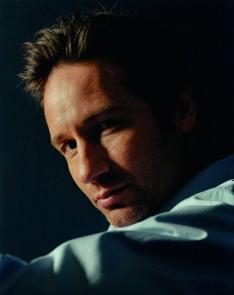The book: Ne’er-do-well Ivy Leaguer Ted Fullilove, a pot-smoking peanut seller at Yankee Stadium, moves back in with his long-estranged father, Marty, after the curmudgeonly old man is diagnosed with terminal cancer. A diehard Red Sox fan, Marty seems to decline whenever the team loses, so Ted and some of his father’s old-timer buddies create the illusion of a winning season for the Sox, culminating with a father-son road trip to the playoffs in Fenway Park. In Bucky F*cking Dent, David Duchovny ’82 explores familial love and redemption against the backdrop of the infamous 1978 Yankees–Red Sox pennant race and Dent’s tie-breaking home run.
The author: David Duchovny ’82 is a television, stage, and screen actor as well as a screenwriter and director. He may be best known for his TV roles as special agent Fox Mulder in the X-Files series and as writer Hank Moody in Californication. His first novel, Holy Cow, was published in 2015.
Opening lines: “Jose Canucci. That’s what they called him at work. Like he was half Latin and half Italian. Apparently Italian on his father’s side. What part of the boot might the Canuccis hail from? No idea. Maybe his mother was a beautiful Puerto Rican woman from Spanish Harlem. F**k, that would be funny. His father would have loved that. But was Canucci actually a real name? He didn’t know. They didn’t even pronounce it properly. The fans didn’t say it right up here. They said Can-you-see. The double c pronounced as s. It wasn’t his name anyway. His name was Ted Fullilove. Talk about a f**ked-up handle. Some frustrated poet at Ellis Island must have jotted down his Russian forebear’s Filinkov or Filipov or Filitov as Fullilove. He went by Ted. Except at work. At work he was Jose. Or Mr. Peanut.”
Reviews: Kirkus Reviews says Bucky F*cking Dent is “a sentimental, staccato love letter to baseball, fatherhood, and the passage of time.” And Goodreads says, “Bucky F*cking Dent is a singular tale that brims with the hilarity, poignancy, and profound solitude of modern life.”


